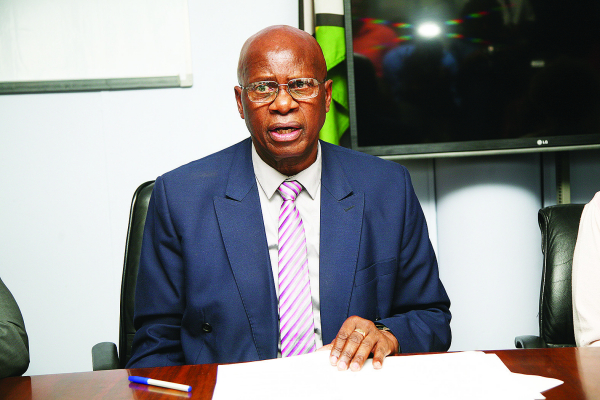
FINANCE minister Patrick Chinamasa has defended Zimbabwe’s insistence on operating a cashless economy, saying countries such as India have since abolished use of cash and adopted electronic transactions.
BY VENERANDA LANGA
Responding to questions from senators recently on how he will address the cash crisis, which continues to affect the economy, Chinamasa said cashless transactions were better as they helped curb corruption.
“In most jurisdictions, the cash-based transactions constitute about 10% to 15%, and in our situation, we are at 16%. But even at 16%, money is not circulating, and even if the Central Bank governor was to pump in billions — whether of bond notes or United States dollars, that money is withdrawn and it is never re-deposited in the banks,” he said.
“When you have that situation, where money is just being withdrawn and not being re-deposited, it means that the circulation is inefficient and you cannot run the economy that way and when we inquire into the reasons, it actually boils down to lack of trust and confidence.”
The Finance minister said India abolished cash transactions, insisting on electronic ones.
“Electronic is better because, as we try to fight corruption, much of it is promoted through usage of cash, where people move with suitcases of cash to bribe others,” he said.
“When transactions are done electronically, there is a paper trail, which inhibits those who would want to commit corruption. There is a problem with some shops, but my own view is that those shops, which are insisting on cash, are losing business because you cannot transact in cash if the cash is not there and it is clearly not in their interest.”
- Chamisa under fire over US$120K donation
- Mavhunga puts DeMbare into Chibuku quarterfinals
- Pension funds bet on Cabora Bassa oilfields
- Councils defy govt fire tender directive
Keep Reading
Chinamasa claimed that most businesses, including those at Siyaso (informal traders), were now transacting electronically “The bulk of transactions in the future are going to be electronic and the sooner we accept that, the better for our good health,” he said.











